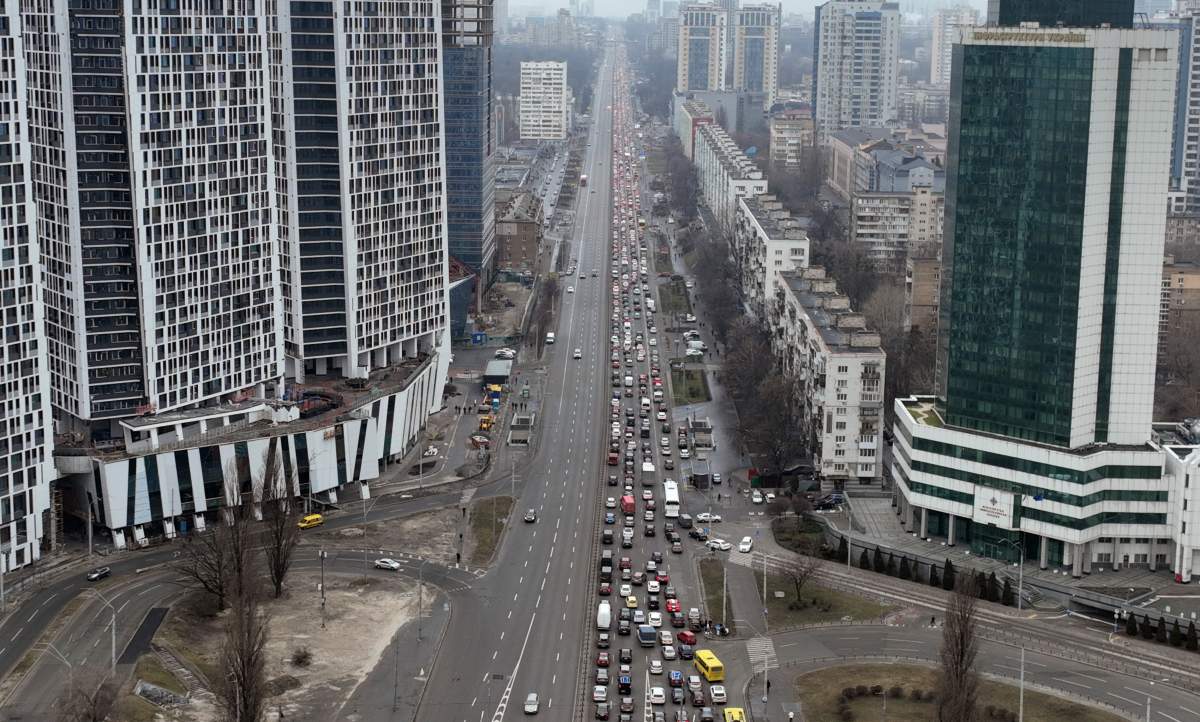Quebec Premier François Legault says his heart is with Ukraine and the province will do its part to welcome refugees after Russian President Vladimir Putin launched a large-scale military attack on the eastern European country.

“It’s completely unacceptable what President Putin is doing,” he told reporters at a news conference Thursday afternoon.
“It’s terrible what the Ukrainian people are going through.”
Legault had penned a letter online earlier in the day expressing his solidarity with Ukraine and Quebecers of Ukrainian descent — of which he estimates there are about 40,000.
He described waking up to “horrible images” from a “new war in Europe” early in the morning.
“I know that many people are worried about friends and relatives left behind. Our thoughts are all with you,” Legault said.
The province also “strongly condemns Russian aggression” in Ukraine and hopes a ceasefire will quickly take place.
“The federal government can count on our full cooperation in the efforts it will undertake in this regard,” Legault said.

Putin announced early Thursday morning that a “special military operation” would occur in eastern Ukraine, but said Russia doesn’t have a goal to occupy the country.
Yet several areas throughout Ukraine were targeted by missile strikes — prompting Ukrainians to start fleeing — while Russian forces also landed troops on the country’s south coast.
At least 40 people have been killed and dozens were wounded by the Russian shelling, an adviser to the Ukrainian presidential office said.
Legault said the province will do its part to welcome Ukrainian refugees in the coming weeks and months.

Get breaking National news
“We also stand ready to offer humanitarian material assistance whenever possible,” he wrote.
Quebec’s international relations minister reiterated Legault’s offer for assistance, adding the government is ready to support the local Ukrainian community as well as those fleeing the country.
“We can also greet and welcome refugees from Ukraine,” Nadine Girault said.

With tensions escalating Wednesday and shortly before the military operation was launched, the province’s National Assembly unanimously voiced sympathy and support for the people of Ukraine.
Quebec Liberal Leader Dominique Anglade called the invasion “devastating,” saying it was an attack against democracy. Ukrainians forced to leave their homes are “welcome here” if they can come, she added.
Gabriel Nadeau-Dubois, co-spokesperson of Québec solidaire, said the unfolding attack was “extremely worrying.” Joël Arseneau of the Parti Québécois described it as a “dark day for democracy in the western world.”
Montreal Mayor Valérie Plante also condemned the invasion Thursday morning, saying it was in violation of the United Nations Charter. The Ukrainian flag was raised at city hall in the afternoon.
“The city of Montreal stands in solidarity with the Ukrainian people, with whom we share a historic and deep relationship,” she said. “My heart goes out to the innocent victims.”
Quebec’s premier urged forming a “common front with our European and American allies.”
“I am confident that together we will be able to defend our democracies and the fundamental principles of our societies,” Legault said. “My heart is with the people of Ukraine.”
‘It creates uncertainty’
Quebec Finance Minister Eric Girard said the invasion could economically impact the province, warning that gas prices could rise.
“The developments in the last hours are worrying,” he told reporters at the National Assembly. “It creates uncertainty.
“Since Russia is a major energy producer, it increases energy prices, it creates inflation and it could slow down the world economy.”
Girard said the province could set aside money in the upcoming provincial budget on March 22 in order to counter the possible economic impacts of Russia’s invasion in Ukraine.
“To the extent that there is more uncertainty, it may be necessary to have larger reserves,” he said.
Liberal finance critic Carlos Leitão said the price of oil will likely jump and that Girard should set aside “a few billion dollars” in his budget given the developing situation in eastern Europe.
—with files from Global News’ Sean Boynton , Ahmar Khan, Aaron D’Andrea, Dan Spector and The Canadian Press










Comments
Want to discuss? Please read our Commenting Policy first.